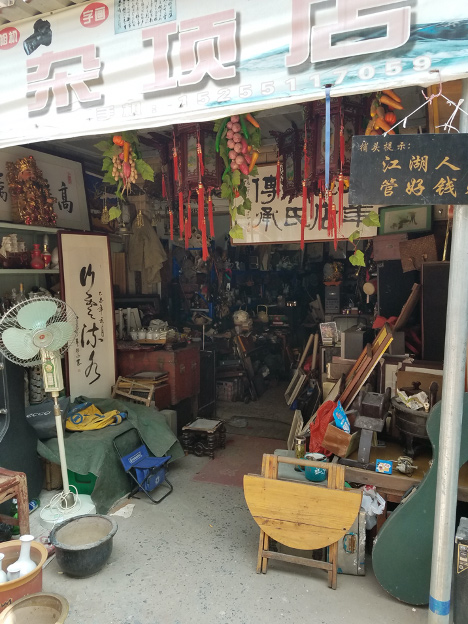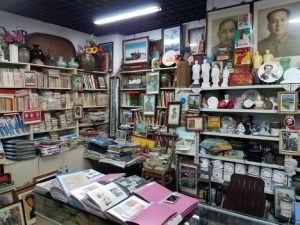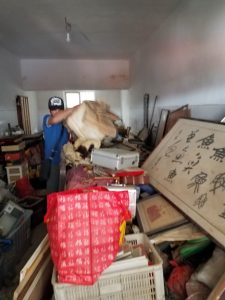 Pursuing a PhD in history is a demanding, long-term commitment. Graduate students balance rigorous reading requirements with language learning, research, teaching, grading, grant applications, and personal and family commitments. Faculty support, access to financial resources, and interconnected systems of area studies centers provide the Department’s outstanding PhD students with the tools they need to excel.
Pursuing a PhD in history is a demanding, long-term commitment. Graduate students balance rigorous reading requirements with language learning, research, teaching, grading, grant applications, and personal and family commitments. Faculty support, access to financial resources, and interconnected systems of area studies centers provide the Department’s outstanding PhD students with the tools they need to excel.
Fourth-year graduate student Donald Santacaterina, one of the Department’s latest recipients of the prestigious Fulbright-Hays Dissertation Research Scholarship, credits his professional success to the networks of scholars and institutions in the Department. Santacaterina’s research focuses on Chinese media and global propaganda systems, specifically how global news currents shaped local media in Anhui Province in the People’s Republic of China (PRC) during the Maoist period (1949–1976). To work around the nearly impossible task of accessing Chinese archives, Santacaterina has turned to newspapers and print sources available in Anhui’s flea markets—a method he calls “garbology.” He explains that scholars of Chinese history are deploying such innovative interpretive skills to adapt to the increasingly challenging research climate; in the process, they are uncovering hitherto unexamined sources. Faculty advisors Michelle King and Louise McReynolds have encouraged Santacaterina’s creativity and helped sharpen his analysis of PRC media culture. King has helped him sift through relevant primary and secondary source materials while McReynolds has pushed him investigate how local media interpreted, rather than uncritically absorbed, news issued from top-level officials and institutions. Santacaterina acknowledges how critical this faculty support is to the Department’s students, who regularly win external fellowships and academic accolades. Connections between the History Department and the UNC Center for Global Initiatives (CGI) have been equally important to Santacaterina’s studies. In fact, the Foreign Language and Area Studies (FLAS) and pre-dissertation research grants Santacaterina received, in addition to the Fulbright-Hays, have all come through CGI. This research pipeline, or “application stream,” as Santacaterina’s calls it, ensures that students in the Department have the funds and resources they need to succeed academically. In Santacaterina’s case, this includes research in the United Kingdom, Australia, and China or Taiwan, depending on the COVID-19 crisis.
 Even after completing their dissertation research, graduate students continue benefit from the Department’s support for project completion and post-graduation employment. Allison Somogyi, PhD ’19, is currently finishing a one-year postdoctoral fellowship jointly supported by Yale and the University of Southern California. In her position, Somogyi has broadened her dissertation research, which gives voice to female survivors of sexual violence during and after the Holocaust. Like Santacaterina, Somogyi attributes her academic success to the Department’s ability to connect students to able mentors and much-needed funds. Advisor Chad Bryant and co-mentor Karen Auerbach smoothed Somogyi’s transition from United States to European history. Research support provided through the Saul Kagan Fellowship in Advanced Shoah Studies and the Conference on Jewish Material Claims Against Germany allowed Somogyi to pull together sources from archives in Hungary, Israel, and Washington, D.C., and a dissertation completion grant permitted her to focus her final year in the program on writing and securing her current postdoctoral position. In recent months, Somogyi has seen her tireless work at UNC come to fruition. Most notably, she was presented with the Dean’s Distinguished Dissertation Award, given annually to the most innovative, sophisticated, and original dissertation completed within each field of study. Meanwhile, Somogyi has assisted Yale and USC archivists with digitizing many of the more than 40,000 documents related to Holocaust survivors’ testimonies housed at the two institutions.
Even after completing their dissertation research, graduate students continue benefit from the Department’s support for project completion and post-graduation employment. Allison Somogyi, PhD ’19, is currently finishing a one-year postdoctoral fellowship jointly supported by Yale and the University of Southern California. In her position, Somogyi has broadened her dissertation research, which gives voice to female survivors of sexual violence during and after the Holocaust. Like Santacaterina, Somogyi attributes her academic success to the Department’s ability to connect students to able mentors and much-needed funds. Advisor Chad Bryant and co-mentor Karen Auerbach smoothed Somogyi’s transition from United States to European history. Research support provided through the Saul Kagan Fellowship in Advanced Shoah Studies and the Conference on Jewish Material Claims Against Germany allowed Somogyi to pull together sources from archives in Hungary, Israel, and Washington, D.C., and a dissertation completion grant permitted her to focus her final year in the program on writing and securing her current postdoctoral position. In recent months, Somogyi has seen her tireless work at UNC come to fruition. Most notably, she was presented with the Dean’s Distinguished Dissertation Award, given annually to the most innovative, sophisticated, and original dissertation completed within each field of study. Meanwhile, Somogyi has assisted Yale and USC archivists with digitizing many of the more than 40,000 documents related to Holocaust survivors’ testimonies housed at the two institutions.
 Both Santacaterina and Somogyi noted their gratitude to the Department, while stressing the vital need for donors and alumni to continue their support of current and future history graduate students. The COVID-19 crisis, which has thrown a wrench into the hopes and plans of many PhD students, makes that need all the more acute. Somogyi’s fellowship, for example, will not be available next year because of budget restraints partially connected to the COVID-19 crisis. Santacaterina is negotiating travel restrictions enacted by funders that jeopardize his ability to collect the materials required for his project. For research to continue during and after the current economic downturn, graduate students at UNC will continue to rely on generous contributions to support travel and allow them to track down sources and write groundbreaking new scholarship.
Both Santacaterina and Somogyi noted their gratitude to the Department, while stressing the vital need for donors and alumni to continue their support of current and future history graduate students. The COVID-19 crisis, which has thrown a wrench into the hopes and plans of many PhD students, makes that need all the more acute. Somogyi’s fellowship, for example, will not be available next year because of budget restraints partially connected to the COVID-19 crisis. Santacaterina is negotiating travel restrictions enacted by funders that jeopardize his ability to collect the materials required for his project. For research to continue during and after the current economic downturn, graduate students at UNC will continue to rely on generous contributions to support travel and allow them to track down sources and write groundbreaking new scholarship.
“Garbology” in Actiona the Anhui Flea Market. All photos by Donald Santacaterina.
